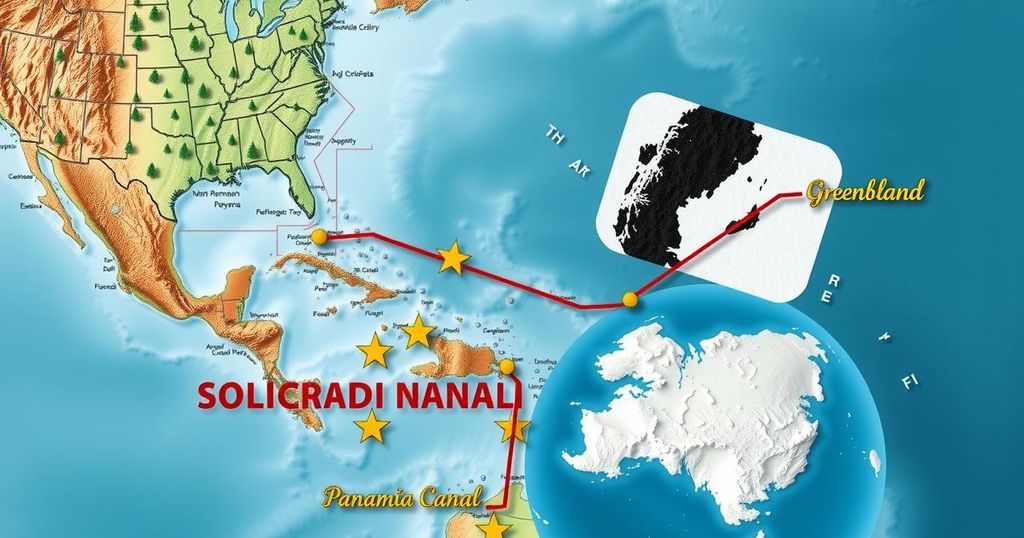Weather
CA, CANADA, CITIES ATLANTIC BARRIE CALGARY EDMONTON GUELPH KINGSTON KITCHENER LETHBRIDGE LONDON MONTREAL NANAIMO NEWFOUNDLAND, CTV NEWS, CURRENT EVENTS, EUROPE, EVENTS, LETHBRIDGE, LOCAL NEWS, LONDON, NEWS, NORTH AMERICA, ONTARIO, RED, SASKATOON, SAULT STE, TRUMP, UNITED KINGDOM, UNITED STATES, VIDEO, WEATHER
Amira Khan
0 Comments
Trump’s Controversial Proposals: Acquiring Panama Canal and Greenland
Former President Donald Trump’s interest in acquiring the Panama Canal and Greenland underscores an unconventional approach to U.S. foreign policy. These proposals aim to enhance American strategic and economic interests, raising significant questions about their legality and implications within international relations.
During his presidency, Donald Trump expressed interest in acquiring both the Panama Canal and Greenland, showcasing a controversial approach to U.S. foreign relations and land acquisition. His administration believed that the acquisition of these territories would enhance American strategic interests and economic benefits. The proposal to purchase Greenland, in particular, garnered significant media attention and raised questions about the implications of such territorial expansion in modern geopolitics.
In discussions surrounding the Panama Canal, Trump argued its historical significance and its potential to bolster U.S. maritime dominance in Central America and the Caribbean. However, the approach sparked criticism and skepticism regarding the feasibility and legality of such acquisitions, questioning whether such ideas align with international norms and agreements.
The Panama Canal, completed in 1914, has always been pivotal for global maritime trade, significantly reducing travel time for shipping between the Atlantic and Pacific Oceans. Control of the canal has shifted over the years, culminating in the 1999 transfer of authority from the United States to Panama. As for Greenland, the largest island in the world, it has strategic value due to its geographic proximity to the North Pole and its natural resources. The Trump administration’s interest in these territories reflects a broader strategy of emphasizing national security and economic interests on the global stage.
The proposals made by President Trump regarding the acquisition of the Panama Canal and Greenland illustrate a unique and somewhat provocative framework of foreign policy. Though these discussions stirred considerable debate, they ultimately highlighted the complexities surrounding territorial acquisitions and their impacts on international relations. In a rapidly changing geopolitical landscape, such ambitions may warrant careful reconsideration and analysis.
Original Source: kitchener.ctvnews.ca




Post Comment